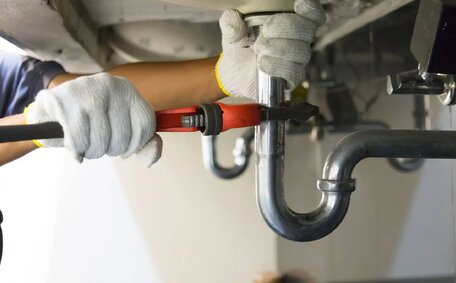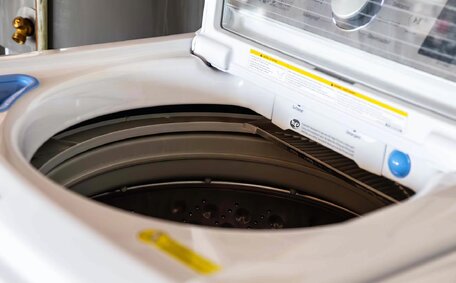Composition and Common Uses of Natural Gas
Your home’s gas supply predominantly consists of methane, complemented by trace quantities of other hydrocarbons such as propane and butane. A distinguishable odorant is infused into gas lpg or natural gas, imparting a well-known "rotten egg" aroma for reliable safety detection.
Referred to as cooking gas, natural gas is essential for a variety of applications including cooking, heating, and powering gas stoves in both domestic and commercial settings. It also has various industrial applications and is used as a raw material for manufacturing products like fertilisers, antifreeze, plastics and fabrics.
Efficiency and Environmental Benefits of Natural Gas
Compared to coal and oil, natural gas offers multiple environmental benefits. When burned, Natural gas releases more than 50% less carbon dioxide than coal and significantly less nitrogen dioxide than air polluting oil gas. This positions gas burned as a cleaner fossil fuel option with reduced contributions to air pollution compared to greenhouse gas emissions driving climate change.
Natural gas power plants, generally more efficient at converting fuel to energy than coal plants, enhance air quality through higher energy conversion efficiency. and innovations like combined cycle power plants are enhancing efficiency, making it possible to turn off gas plants when demand is low, thereby reducing hazardous air pollutants. This demonstrates how we are burning natural gas more efficiently, needing less overall fuel for the same energy output.
The advancement of horizontal drilling and hydraulic fracturing has spurred shale gas development with extraction from gas wells, notably increasing reserves of natural gas as a prime energy source. The natural gas industry has benefited from the shale gas boom, leading to the displacement of dirtier coal power generation across the United States, in part because natural gas is lighter than other fuels.
Natural gas’s safety advantage stems from its cleaner combustion and being lighter than air, which helps reduce certain emissions. With concerns about methane emissions in natural gas production, transportation, and usage, entities including the gas distribution association and the Environmental Protection Agency are involved in regulatory oversight. Preventing these emissions is critical to reduce your impact and block methane from diffusing into atmosphere, optimising the climate benefits and protecting human health.
Best Practices for Safe Natural Gas Usage
To safely operate your gas appliance, it is paramount to adhere to essential gas safety tips, precautions and best practices:
Proper Ventilation
Areas where natural gas is used, like where water heaters, stoves, and dryers are located, must be sufficiently ventilated to maintain excellent indoor air quality. Open windows or install vent fans or air conditioning if natural airflow is insufficient.
No Flammable Chemicals
Keep flammable liquids such as paints and thinners away from gas appliances and supply lines to prevent accidental ignition. Their vapours might ignite from an inadvertent spark or flame, which is precisely the scenario we aim to circumvent with safe do-it-yourself gas practices.
Don’t Tamper with Valves
Never attempt to modify or tamper with safety valves on gas appliances or pipes. Such actions could disable critical safety mechanisms that shut off the main gas flow during hazardous conditions.
Annual Inspections
Annually enlist a licensed gasfitter to inspect your gas appliances, confirming their safe functionality. They’ll check for faulty parts, adequate ventilation and no leaks across supply lines. This preventative upkeep is pivotal for maintaining health safety and ensures ongoing secure operation of natural gas equipment.
Install Gas Detectors
Consider installing gas detectors as an additional safety net. These battery-powered alarms will activate to safe do gas detection at concentrations expressed in parts per million, alerting you to potential leaks.
Adhering to fundamental safety measures such as adequate room ventilation, keeping ignition sources away from your stove, and regular inspections by licensed technicians can reduce risks associated with natural gas in your home.
Detecting and Responding to Gas Leaks
It is critical to quickly detect gas and respond to any potential natural gas leaks to ensure safety. There are several key signs to watch out for:
Rotten Egg Smell
A persistent rotten egg odour indicates the presence of natural gas and suggests a possible leak. If you catch a whiff of this distinct odour, it may indicate a leak your sensors haven’t picked up.
Hissing or Whooshing Sounds
Listen for any hissing or roaring noises that could indicate pilot lights or gas flow inconsistencies from appliances or pipes. This sound could indicate that any gas, including natural gas, may be escaping.
Dead Plants or Grass
Vegetation discolouration or dying plants near a gas pipeline may signify underground gas leaks, suggesting the need to dial before dig activities.
Consider installing natural gas detectors for additional leak detection. These battery-operated alarms activate when they sense dangerous leaking gas concentrations.
If You Suspect a Leak
If you notice any of the above signs, dial before taking further action:
- Evacuate the area and get everyone to fresh air
- Call 000 if the leak poses an immediate threat
- Contact your local Carlingford Plumbing on 1300 349 338 for assistance
- Shut off your gas using the shutoff valve on your meter
- Do NOT turn appliances or lights on or have them turned off, or use phones, as these could spark an explosion
Never ignore the dangers natural gas or warning signs of a potential natural gas leak, as inhaling gases like methane can cause nausea, fatigue, unconsciousness and even death in high concentrations. Acting expediently by engaging licensed professionals, as Kephart says, ensures swift rectification and safeguards against natural gas poisoning.
Common Misconceptions About Natural Gas
Let’s talk about questions such as 'what do the warning signs of gas leaks look like?' to demystify the use and safety of natural gas:
It Always Smells
Many assume that when you smell natural gas, its strong rotten egg odour makes leaks obvious. In some cases, gas also might escape detection if a leak is deep underground or away from inhabited spaces.
It’s Not Toxic
Breathing in natural gas can lead to dire health complexities, as underscored by research from esteemed institutions like the chan school public. At high concentrations, methane and other gases can cause nausea, fatigue and unconsciousness. Long-term exposure may also amplify health effects such as increased health risks for certain cancers and organ damage.
It Only Explodes
Beyond the risk of explosions from ignition sources, natural gas emissions can also impact health, as confirmed by scientific research. Inhaling unburned methane and trace gases can cause breathing problems, headaches, dizziness and other symptoms.
It’s Safer Than Other Fuels
Natural gas holds certain safety and environmental benefits when compared to coal and oil. But it still carries risks, from leaks, explosions and exposure to hazardous fumes including unburned natural gas produced. It also has larger greenhouse gas emissions than truly clean renewables like solar and wind.
Staying informed about your home business gas safety protocols permits utilisation with prudent precautions, protecting the wellbeing of your residence or enterprise and personal domain. Ensuring your safety with annual inspections of your natural gas appliances, installing gas detectors and knowing leak response steps also help minimise risks in homes.
Future Advancements in Natural Gas Safety
There are ongoing innovations to further improve the safety of natural gas in domestic and commercial settings.
Smarter Gas Detectors
To keep natural gas safe, new gas detectors are being developed with "smart" connectivity and features. These sensors can continuously monitor homes for gas leaks and remotely alert homeowners on their phones if elevated levels are detected. Some models also integrate with other smart home devices, like automatically shutting off gas valves.
Advanced Metering Infrastructure
Natural gas providers are installing new smart metre technology called Advanced Metering Infrastructure (AMI). Our video on meters leverage renewable energy advancements for remote, real-time monitoring of leaks and related issues. AMI systems serve as a beacon for gas utilities, alerting companies to issues swiftly and enabling a rapid response.
Hydrogen Blending
Innovations like blending natural gas with clean hydrogen are under trial, aiming to lower emissions from leaks and combustion. As hydrogen is heavier than air and produces only water vapour when burned, blending it can mitigate some of natural gas’s greenhouse impacts.
Renewable Natural Gas
Renewable natural gas, or biomethane, represents a sustainable alternative to traditional natural gas, pointing towards a future of cleaner energy. This biogas is captured from decomposing organic waste from landfills, farms or wastewater. As biogas comes from renewable sources, it provides opportunities for clean energy use.
Continual technological improvements like these will further minimise risks around natural gas. They demonstrate that natural gas is becoming an even cleaner and safer home energy solution.





